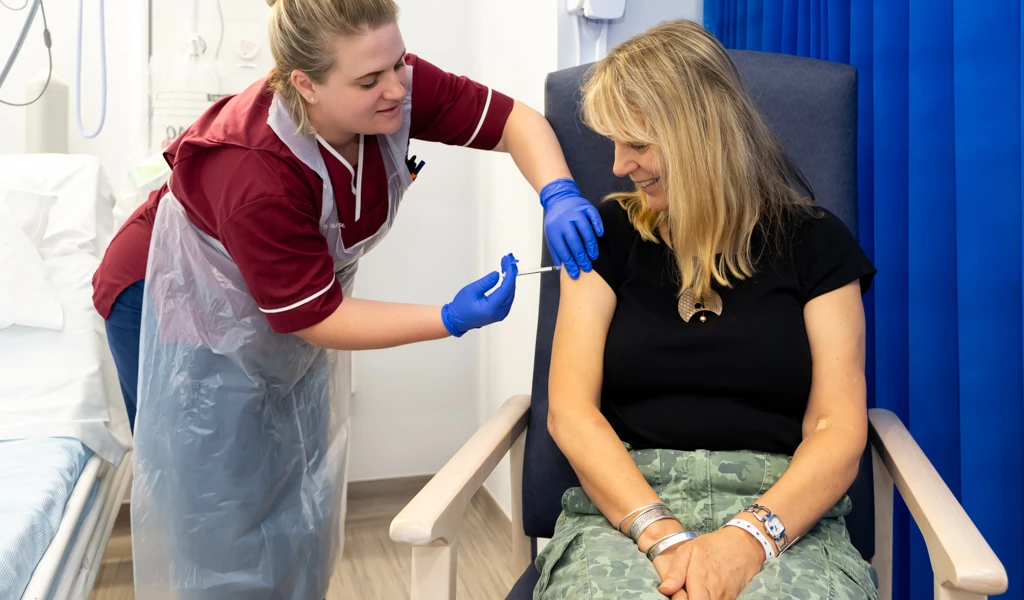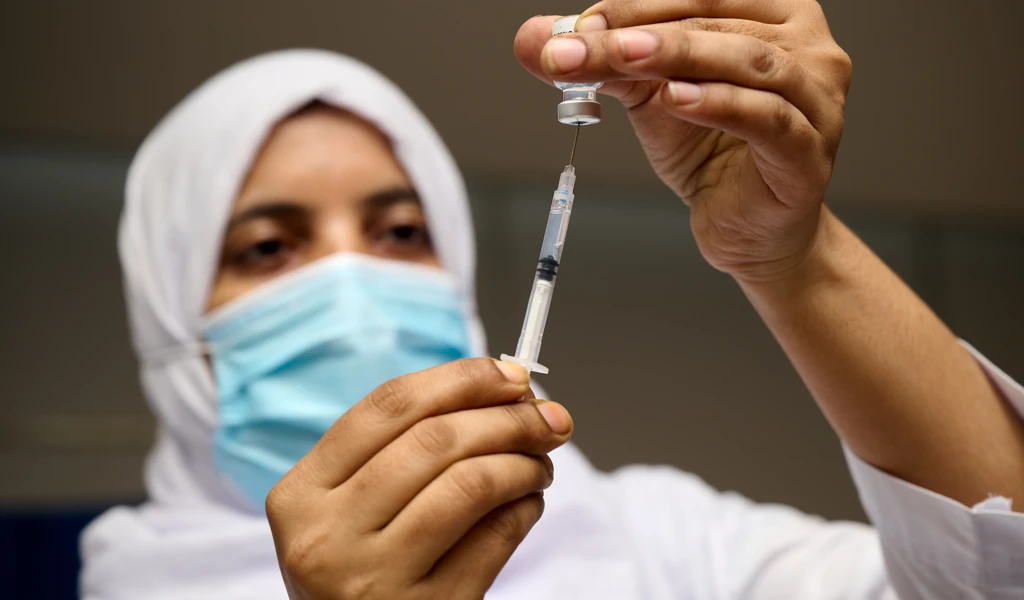World's largest COVID-19 vaccine testing network to assess vaccines against other epidemic and pandemic threats

Network of laboratories will use the same methods and materials to standardise evaluation of different vaccines in clinical trials
Set up and funded by CEPI, the network aims to more rapidly, efficiently, and accurately identify the most promising vaccine candidates with the greatest potential to advance to late-stage clinical trials and regulatory review
Vaccines being developed against CEPI's priority pathogens will be among those assessed by the new laboratories joining the network
CEPI's centralised testing approach has already been used by over 30 COVID-19 vaccine developers to assess over 15,000 clinical trial samples
*The deadline for laboratories to apply to join the network has been extended to 18 March 2022*
Oslo, Norway, 22 November 2021 — The Coalition for Epidemic Preparedness Innovations, or CEPI, has today announced plans to expand its COVID-19 vaccine testing network to also assess the development of vaccines against other epidemic and pandemic diseases.
This network is the largest global group using the same methods and materials, like reagents—substances used to carry out a scientific test—to standardise the evaluation of COVID-19 vaccines currently undergoing preclinical and clinical trials.
The expanded network is set to also now assess candidate vaccines being developed against CEPI's priority diseases — Chikungunya, Lassa fever, MERS, Nipah, Rift Valley fever, and Disease X. CEPI is currently supporting the development of multiple vaccines against these high-risk pathogens, identified on the World Health Organization R&D Blueprint as having epidemic potential or as a major public health risk, as part of its $3.5bn plan to minimise or even eradicate future deadly disease threats.
Providing the tools to harmonise the assessment of epidemic and pandemic vaccines will allow researchers and regulators to evaluate the most promising vaccine candidates quickly and accurately - a key part of the process needed to support CEPI's ambitious goal to reduce the vaccine development timeline to 100 days.
The extension of scope requires additional laboratories to join the centralised group, with CEPI today opening a Call for Proposals to identify laboratories worldwide able to assess these vaccines undergoing clinical testing. CEPI is particularly eager to receive applications from laboratories capable of performing such testing in South America, Africa, and Oceania — regions where the centralised network does not currently have laboratories.
We've already seen multiple deadly disease outbreaks affecting populations over the twenty-first century - and we know that the next pandemic is not a case of ‘if' but ‘when'.
So, while we continue to tackle COVID-19, we must also make sure that vaccine developers working on other emerging infectious diseases with epidemic or pandemic potential have the same level of scientific research and resource available to them to best prepare for future outbreaks.
This means building on what we've learned and created during this current crisis and extending our centralised labs network to also test against other known threats - and a potential future ‘Disease X'. Through this expansion, we can provide the resources to uniformly assess multiple vaccines under evaluation which could, in turn, speed up the development of future vaccine candidates.
Centralising the assessment of infectious disease vaccines
During the typical vaccine evaluation process, the immune response of each vaccine candidate under development is assessed using different tools and measurements at individual testing sites, allowing for variability in results. For example, there may be potential variation in the way in which different type of immune biomarkers, like antibodies and T-cells, are measured. Technical differences in how and where vaccine clinical trial samples are collected, transported, and stored can also occur, impacting the quality and usefulness of the data produced and making comparisons between measurements difficult.
By following the same protocols and using the same biological reagents, laboratories within CEPI's centralised network can instead ensure uniformity in the assessment of different vaccine candidates.
Work on COVID-19 vaccines
CEPI's centralised laboratory network first opened to all COVID-19 vaccine developers—both CEPI-funded and non-CEPI-funded—free of charge*, in October 2020, for the analysis of COVID-19 vaccine clinical trial samples, up to Phase III studies.
Laboratories already part of this group are located in Bangladesh, Canada, China, India, Italy, Mexico, the Netherlands, UK, and USA. To date, over 30 COVID-19 vaccine developers have now used the service, with more than 15,000 clinical trial samples submitted for testing.
Data obtained from the tests performed by laboratories currently in the network are being used to inform COVID-19 vaccine developers as to whether their candidate could advance to later-stage clinical trials and could also guide regulatory decisions. Results are also being used to guide investments made around the CEPI COVID-19 vaccine portfolio by providing quick and accurate evaluation of its candidate vaccines. The same principles will apply to the expanded network testing clinical trial samples against other emerging infectious diseases.
Since July 2021, some laboratories within the current network have started assessing and harmonising incoming data on the performance of multiple COVID-19 vaccines against identified variants of concern — Alpha, Beta, Gamma, and Delta.
CEPI has, to date, provided up to US $17.5 million in funding to support the running of the current network. Additional funding will be made available to support the expansion of the network.
-ENDS-
*Excluding shipping charges.
Notes to Editors
Laboratories interested in applying to join our centralised network can find out more information and submit their applications here. The deadline for applications is 18 February 2022. CEPI is also set to run webinars in upcoming weeks to guide interested laboratories through the application process and to respond to any questions relating to the Call.
A list of laboratories currently part of this vaccine testing network assessing COVID-19 vaccine candidates and further information on how the laboratories use the same key reagents to test COVID-19 vaccine clinical trial samples is available here.
The current centralised network remains open to all COVID-19 vaccine developers wishing to assess their clinical trial samples. To monitor interest and adjust the testing capacity, CEPI requests that all COVID-19 vaccine developers interested in using CEPI's centralised laboratory network complete this short survey. Any COVID-19 vaccine developer ready to submit their samples to the network should complete our Sample Analysis Request Form.
The expanded network will be open to all vaccine developers working on vaccine candidates against our priority pathogens. By opening the sample testing network to both CEPI-funded and non-CEPI-funded vaccine programmes, CEPI aims to ensure that all eligible developers—regardless of their size—can benefit from this analysis.
Certain commitments may be required for eligibility, such as making timely publication of sample testing results and sharing data that will be produced on the immunogenicity of vaccine candidates to facilitate future regulatory decisions. The number of samples available for testing per developer may be limited depending on response.
CEPI-funded vaccine developers will be encouraged but will not obliged to use the centralised lab network. Results produced by the centralised lab network will be sent back to the vaccine developer — neither CEPI nor the laboratory who assessed the preclinical or clinical samples will own the data.
About CEPI
CEPI is an innovative partnership between public, private, philanthropic, and civil organisations, launched at Davos in 2017, to develop vaccines against future epidemics. Prior to COVID-19, CEPI's work focused on developing vaccines against the Ebola Virus Disease, Lassa virus, Middle East Respiratory Syndrome coronavirus, Nipah virus, Rift Valley Fever virus and Chikungunya virus. It has over 20 vaccine candidates against these pathogens in development. CEPI has also invested in new platform technologies for rapid vaccine development against unknown pathogens (Disease X).
During the current pandemic, CEPI initiated multiple programmes to develop vaccines against SARS-CoV-2 and its variants with a focus on speed, scale, and access. These programmes leverage the rapid response platforms developed by CEPI's partners prior to the emergence of COVID-19, as well as new collaborations. The aim is to advance clinical development of a diverse portfolio of safe and effective COVID-19 candidates and to enable fair allocation of these vaccines worldwide through COVAX.
CEPI's 5-year plan lays out a $3.5 billion roadmap to compress vaccine development timelines to 100 days, develop a broadly protective vaccine against COVID-19 and other Betacoronaviruses, and create a "library" of vaccine candidates for use against known and unknown pathogens. The plan is available at www.endpandemics.cepi.net.
Follow our news page for the latest updates. Follow us via @CEPIvaccines, @DrRHatchett, and on LinkedIn.


